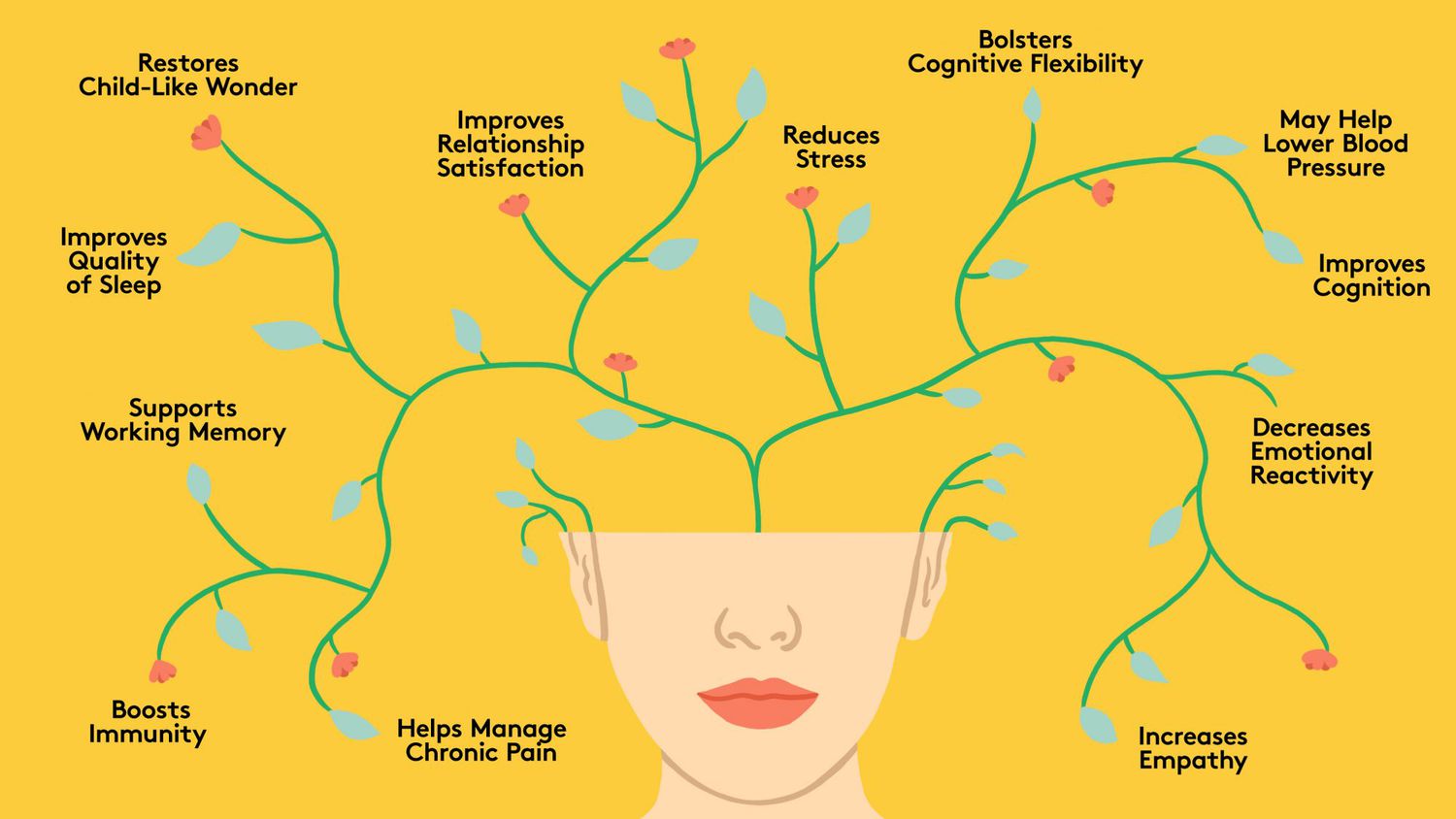The Benefits of Mindfulness
Mindfulness is a practice that has gained significant popularity in recent years due to its numerous benefits for mental and physical well-being. In this article, we will explore the various advantages of incorporating mindfulness into your daily life.
Improved Mental Health
Mindfulness has been shown to have a positive impact on mental health. By focusing your attention on the present moment and accepting it without judgment, mindfulness can help reduce stress, anxiety, and depression. Regular practice of mindfulness techniques, such as meditation or deep breathing exercises, can enhance emotional resilience and promote a sense of calm and inner peace.
Enhanced Cognitive Function
Engaging in mindfulness exercises can also improve cognitive function. By training your mind to stay focused on the present moment, you can enhance your ability to concentrate and maintain attention. This can be particularly beneficial for individuals who struggle with distractions or have difficulty staying focused on tasks. Studies have shown that mindfulness practice can lead to improved memory, creativity, and problem-solving skills.
Stress Reduction
One of the key benefits of mindfulness is its ability to reduce stress levels. In today’s fast-paced world, stress has become a common problem that can negatively impact both our physical and mental well-being. Mindfulness techniques, such as mindful breathing or body scans, can activate the body’s relaxation response, leading to a decrease in stress hormones and a sense of calmness. Regular practice of mindfulness can help individuals better manage stress and improve overall resilience.
Improved Physical Health
Mindfulness not only benefits mental health but also has positive effects on physical well-being. Research has shown that regular mindfulness practice can lower blood pressure, reduce chronic pain, and strengthen the immune system. By reducing stress and promoting relaxation, mindfulness can contribute to better overall health and a reduced risk of various health conditions.
Enhanced Relationships
Practicing mindfulness can also have a positive impact on relationships. By cultivating a non-judgmental and compassionate attitude towards oneself and others, mindfulness can improve communication, empathy, and understanding. Mindful listening and being fully present in interactions can lead to deeper connections and more fulfilling relationships.

Mindfulness offers a wide range of benefits for both mental and physical well-being. By incorporating mindfulness practices into your daily life, you can experience improved mental health, enhanced cognitive function, reduced stress, improved physical health, and enhanced relationships. Start your mindfulness journey today and reap the numerous rewards it has to offer.
Frequently Asked Questions – Benefits of Mindfulness
1. What is mindfulness?
Mindfulness is the practice of bringing one’s attention to the present moment and being aware of one’s thoughts, feelings, and sensations without judgment.
2. How does mindfulness benefit mental health?
Mindfulness has been shown to reduce stress, anxiety, and depression. It can improve focus, attention, and overall emotional well-being.
3. Can mindfulness help with physical health?
Yes, mindfulness can have positive effects on physical health. It can lower blood pressure, improve sleep quality, and boost the immune system.
4. Does mindfulness improve relationships?
Practicing mindfulness can enhance relationships by improving communication, empathy, and compassion towards others.
5. Can mindfulness increase productivity?
Yes, mindfulness can enhance productivity by improving focus, attention to detail, and reducing distractions.
6. How long does it take to experience the benefits of mindfulness?
The benefits of mindfulness can vary from person to person. Some may experience immediate effects, while others may take weeks or months of regular practice.
7. Can mindfulness help with managing pain?
Yes, mindfulness-based techniques are effective in managing chronic pain by reducing pain intensity and improving coping mechanisms.
8. Is mindfulness suitable for everyone?
Mindfulness can be beneficial for most individuals, but it may not be suitable for those with certain mental health conditions. It’s always best to consult with a healthcare professional if you have any concerns.
9. Can mindfulness be practiced anywhere?
Yes, mindfulness can be practiced anywhere and at any time. It can be done while sitting, walking, eating, or even during daily activities.
10. How can I start practicing mindfulness?
There are various ways to start practicing mindfulness, such as guided meditation, deep breathing exercises, or simply paying attention to your senses in the present moment. You can also find mindfulness apps or join classes to learn more techniques.




